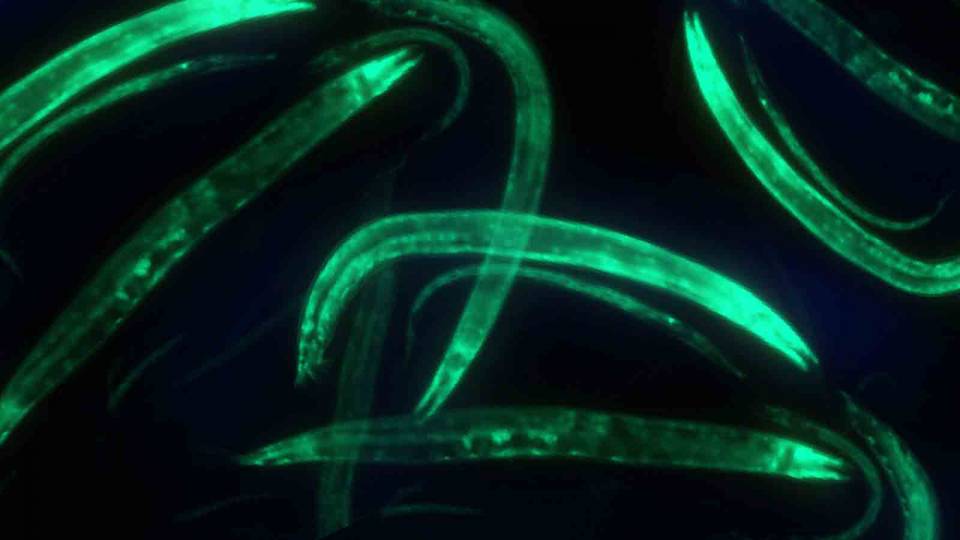In Professor Coleen Murphy’s(Link is external) lab, about 20 projects are under way. The professor of molecular biology(Link is external) and the Lewis-Sigler Institute for Integrative Genomics(Link is external) says that juggling multiple projects may be a challenge, but it keeps things exciting.
“It really makes it interesting to come into lab every day and talk to my students and find out some new cool thing that they found,” Murphy said.
Murphy joined the Princeton faculty in 2005 after earning a bachelor’s degree at the University of Houston and a Ph.D. at Stanford University and doing postdoctoral training at the University of California-San Francisco. Murphy’s lab, in Icahn Laboratory, consists of about 15 postdoctoral researchers, graduate students, undergraduates and technicians who are trying to understand the molecular mechanisms that underlie aging.
“The goal of our research ... is really to use it for health purposes — that is, to slow down age-related diseases,” Murphy said.
The lab does not limit its research to conditions that typically affect the elderly. One area of focus is reproductive aging. According to Murphy, reproductive aging is the first sign of aging in humans.
Like all Princeton faculty, Murphy also teaches. Next semester she will co-teach the undergraduate-level “Introduction to Genomics” and a graduate-level course on “Genetics of Eukaryotic Organisms.”
To the students and postdocs she works with, Murphy is much more than a researcher or teacher.
“She is a great role model for female scientists,” said Rachel Arey, a postdoctoral research fellow. “She emphasizes work-life balance a whole lot and she doesn’t keep us on a time table. ... We have plenty of lab members with families, and she totally supports that.”
Working with Murphy has encouraged sophomore India Rogers-Shepp to continue studying science.
“No one in my family does anything related to research, and I feel like she’s [Murphy] kind of helped me realize that this is something I really can see myself doing in future years. It’s something that I’ve come to love,” she said.




